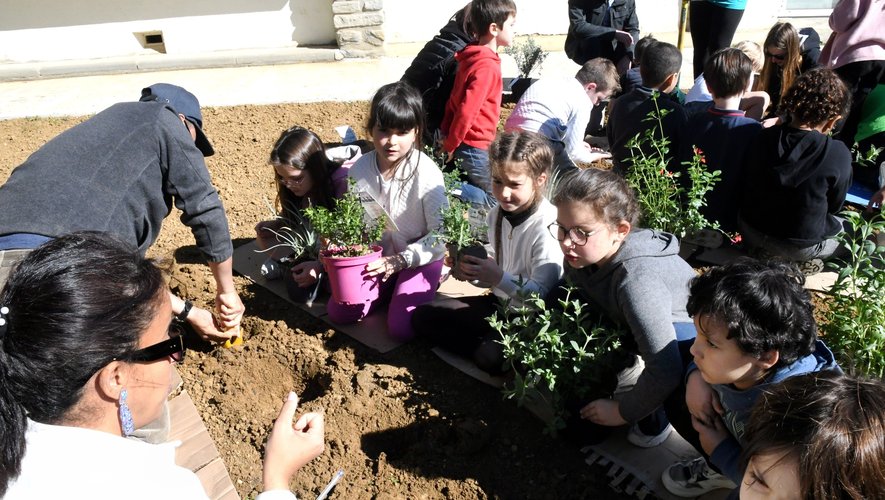The waterproofing of the Isly schoolyard, launched at the beginning of the school year, reached a new stage yesterday with the development of the 2nd plot. The option chosen by the mayor to announce the generalization of this system by 2032.
But beyond this environmental problem, the project implemented in Isly is unique for the good reason that it brings together schoolchildren, teachers, the municipality, CNRS researchers and BTS agricultural students from Charlemagne secondary school. And this Tuesday, April 2, all these beautiful people gathered in the schoolyard to plant the second drainage plot, the first of which had been sown last October. On the programme: garden construction, earthworks, planting and grazing by students under the watchful eye of study advisors.
But the students’ work in the Preparatory Course (CP) was not limited to planting shrubs, aromatic plants and drought-resistant species. All year round, around the concept of “outside teaching” and this project, the schoolchildren play apprentice gardener, but also work on their French through the description of plants, geometry and mathematics with the plan plots, but also the relationship to time and of course the natural sciences. “We are involved in a project-based pedagogy that is paying off. The students gain in well-being, sharpen their observation skills and their curiosity and work on their concentration.” their teacher explains.
The CNRS in support
As a partner of the system, the CNRS also supports this experiment under the auspices of Benoît Pujol, research director of the Criobe laboratory and vice-president of the University of Perpignan. “We are working on a scientific project to observe the evolution of spontaneous plants – weeds – in an urban environment. This approach is both scientific and social to find out whether they can participate in the renaturation of cities. The stakes are high as we know it requires less maintenance, less water”.
An advanced project that also takes place at the Marcel-Pagnol school and will develop in 2024 at the Paul-Eluard and Liberté kindergartens before becoming general in 2032.
